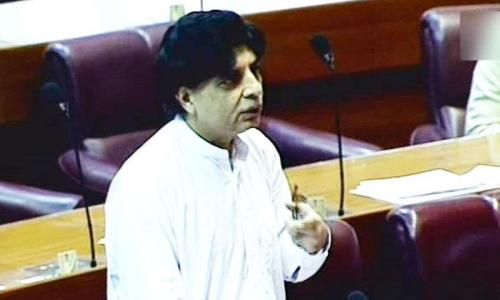WASHINGTON: Pakistan seems ready to launch a military operation in Fata but a continued rivalry with Afghanistan may lead to failure, warn US experts.
In TV talks and think-tank debates this week, experts also emphasised the importance of greater coordination between the forces deployed on both sides of the Pak-Afghan border for this operation to succeed.
Underlining this point, Pakistan’s Ambassador to US, Jalil Abbas Jilani, said his country was seeking a “robust and forward-looking defence partnership” with the United States.
But a former US ambassador to Islamabad, Cameron Munter, said that a durable relationship between the two countries would require a greater engagement with the Pakistani people.
And chairman of the House Defence Appropriations Committee, Rodney Frelinghuysen, who recently visited Pakistan, said the country focused more on perceived threats from India and not enough on its “soft-underbelly, the Taliban”.
In a piece CNN released on Sunday, Frederic Grare, director of the South Asia Programme at the Carnegie Endowment, argued that Pakistan alone could not seal the Afghan border and Afghanistan would not cooperate without a credible guarantee of non-interference from Islamabad.
An operation launched without Afghanistan’s support “would heighten the risk that terrorist sanctuaries could re-emerge, undermining more than a decade of counter-terrorism efforts,” Mr Grare warned.
Continued tensions between Afghanistan and Pakistan, he said, would also reduce America’s “freedom to manoeuvre diplomatically”.
Addressing officers of the staff and war course at the US Marine Corps earlier this week, Ambassador Jilani noted that Pakistan and the United States had together made valuable gains in fighting Al Qaeda and other terrorist networks. “And there is a mutual desire to further build on this fruitful cooperation,” he added. “They can accomplish even better results by further deepening bilateral friendship and trust.”
Experts like Mr Grare noted that the need for US support to a Pakistani military operation in Fata was greater now than ever before.
“Since the TTP operates from Fata and Afghanistan, Islamabad worries that the movement may collude with the Afghan Taliban,” Mr Grare said. “Even a limited operational alliance between the Afghan and Pakistani Taliban would create a serious headache for Islamabad, and could even increase the risk of conflict between Afghanistan and Pakistan.”
To complicate matters further, “Pakistan cannot expect to quash the TTP without Afghan cooperation. Faced with Pakistani pressure, the TTP will inevitably seek refuge in Afghanistan,” he argued.
Mr Grare noted that the US-led coalition forces were unable to stop Taliban infiltration and the Afghan forces were unlikely to perform any better.
In a lecture at the Howard H. Baker Jr. Centre for Public Policy, Knoxville, Tennessee, Ambassador Munter went beyond these immediate concerns and urged the need to rebuild trust.
He recalled how after the 2011 US raid on Osama bin Laden’s compound, relations between the two countries deteriorated rapidly.
“I watched C-17s take away millions of dollars worth of sniper rifles, night vision goggles and computers back to the United States because of this growing collapse of our relationship,” he said. “It took us six months to apologise (over the Salala incident), and in the meantime, the Pakistanis closed the supply routes that go from Karachi to Afghanistan.”
Mr Munter said the Pakistani people perceived American politics and government to be callous, but appreciated US businesses, philanthropy and culture.















































